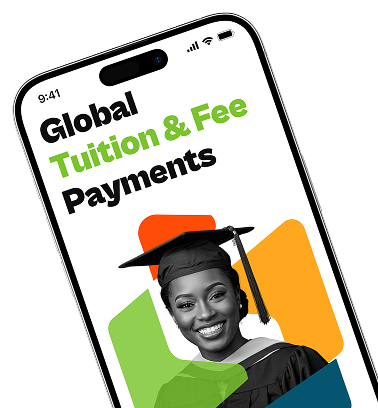Fast forward to arriving in Canada as an international student, Soma Ugochukwu found himself in the same boat as other fresh students searching for jobs. The abundance of job offers he found on numerous websites assured him that grabbing a lucrative job was a walk in the park.
Students competed with their peers and newly unemployed people for jobs and had to understand different employment scam formats. Soma found himself in an abyss of uncertainty and disarray for two months in this unfortunate scenario. Thrice was tricked into believing he got legitimate jobs and often came home to see rejection letters.
International students often face questionable hiring practices and fake job offers, and sometimes, students lose considerable sums of money to fraudsters. Like Soma, he thought it was easy to detect employments scam, but the practice has become more complex.
General Guidance: Employment scams can happen through texts, emails, social media messages, and phone calls, including school email accounts. Please note that you must not pay to get any job abroad.
Many schools warn students about employment scam letter that comes as rewards, incentives, or tuition discounts. Scammers target international and exploit cultural and language barriers. Therefore, you should not allow desperation to get you into trouble.
Read: US Visa Applications Guide for International Students

Fake Job Recruitment
Many international students have received employment for attractive job positions from different job platforms. For instance, AngelList, LinkedIn, or Craigslist employment offers may be false. You should do your homework when a job position comes to you. Many scammers use prominent logos and spoof human resource units' email addresses to make their offers appear legitimate.
Fake Onboarding
Here is how students can suffer from a fake onboarding process:
1. A student receives a legitimate-looking job offer letter, and an onboarding meeting is scheduled.
2. During onboarding, the students realize they have to purchase some equipment from a fake site that appears real.
3. A non-traditional payment option like Bitcoin or Zelle is provided to the students to make payment easier for everyone.
4. When the students have little funds, the scammers provide checks to cash at banks that may clear before bouncing. When this situation happens, students suffer from financial scams.
Employment Scam Communication Techniques
Scammers use the following communication methods to deal with their victims:
Formal/Informal Communication: A potential employer using your school email address that request for your personal email is likely an employment scam.
SMS/Phone Call: Some students may receive a personalized message about a job offer on their phones.
Email: During account compromise, students may receive a job offer from their schools’ trusted email addresses. However, use your school career center to search for legitimate jobs on-campus.
What You Can Do When You Receive Suspicious Job Offers
1. You should ask friends and colleagues to review the contract or offer.
2. Google search the potential employer, location, and reviews.
3. You can use Google Maps to search for business locations.
4. Check the website for non-working links and other questionable information or redirecting.
5. Check for spelling and grammatical errors.
6. Check the profile picture of social media platforms. Many scammers use stock photos that do not relate to their industry.

How to Stay Protected from Job Scams
First-time job applicants have become the top targets of employment scams abroad. International students must pay attention to employment scam letters and email offers. Since you have a limited-period visa, don't be quick to accept offers that look suspicious. If you can detect the red flags, stepping away from employment scams becomes easier.
Scammers may call you to fill an urgent job opening with tall claims of salary and benefits as a student. To lure many students, they promise to allow them to work more than the stipulated student's work period for a week.
If the offer sounds too good, you should not accept the opening. We have listed some ways to avoid this type of fraudulent job offer.
Read: Top 12 Cheap Universities in UK for International Students
Conduct Background Research
Did you apply for the job? You should check the numerous forms you filled out and the jobs you applied. Legitimate recruiters may find your Linkedin profile to offer you jobs. However, they don't rush to give you a job with many questionable benefits. Therefore, you must do background research when you get an offer.
1. Are the contact details legitimate?
2. Is the vacancy mentioned on any other job site?
3. Can you find the recruiter on LinkedIn?
4. If you can’t verify the credentials, don’t respond.
Notice the Timelines
You don't have to join a job without due research because your visa has a time limit. Whether you receive an exclusive career service or a job that allows you to work throughout the clock, you don't have to make any payment to them. Don't allow pressure to work to make you get into trouble abroad.
Inspect the Company Website/Social Media Platforms
International students should inspect the companies' websites and social media platforms before going through the job processes. Some employments don't exist after you must have gone through the hiring process. As a result, you should ensure that the company offering a job exists.
Here are some of the questions you should find their answers:
1. Does the company have any negative reviews?
2. Was the potential company incorporated recently?
You should check for fake addresses and phone numbers. We recommend contacting a few current employees via social media platforms or emails.
Pay Attention to Money Matters
International students should learn more about career-related matters from their schools’ career units. These careers services offer students resources and advice about practice tests or mock interviews. You don't make payments upfront if you want a job abroad. When you make payments for employment or career opportunities, you don't get what you need.
Read: How to get US Social Security Cards for International Students
Ask for an Employment Contract
You don't stop here when you have gone through numerous hiring processes before getting a job. You must request an employment contract detailing every aspect of your work and payment offers.



